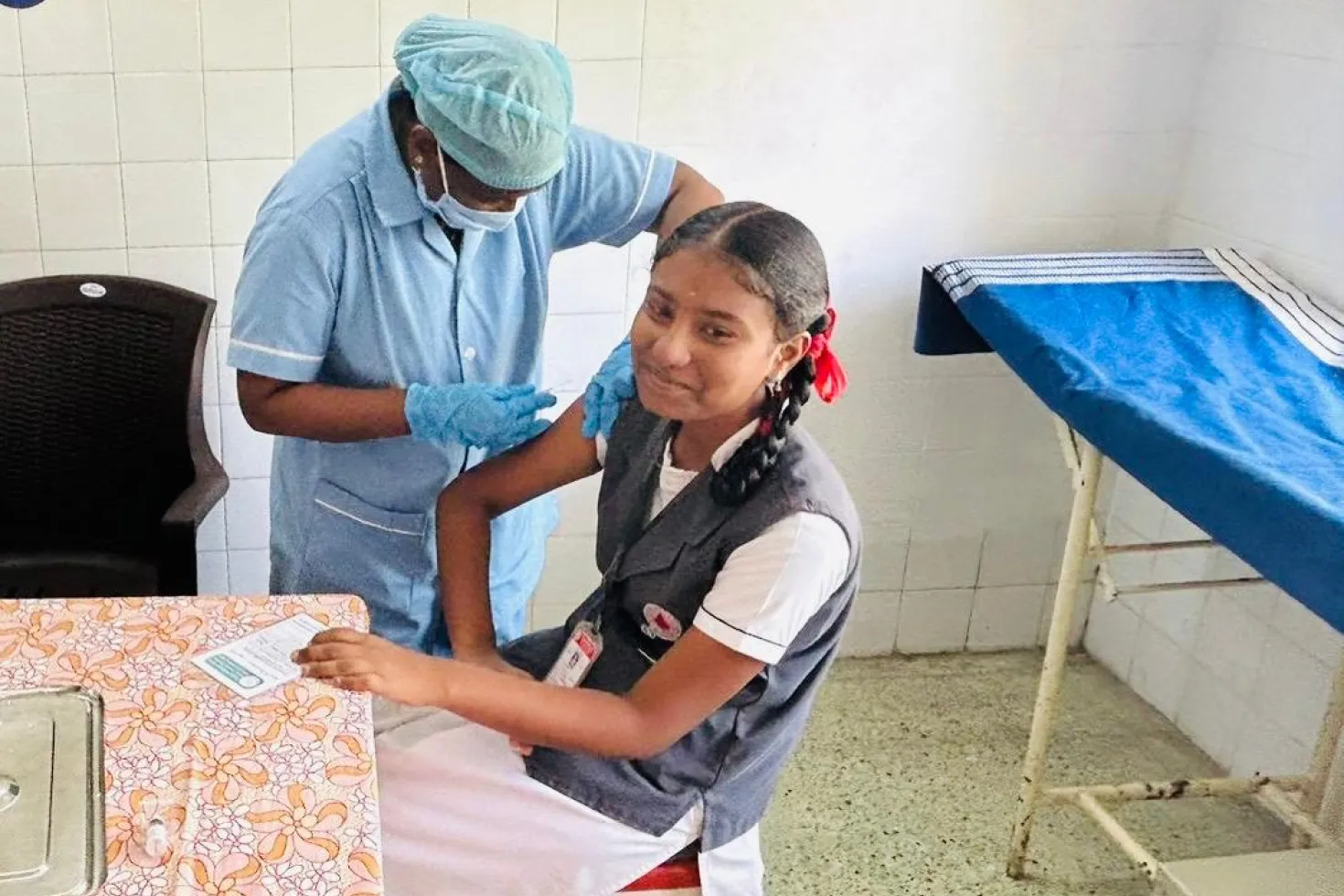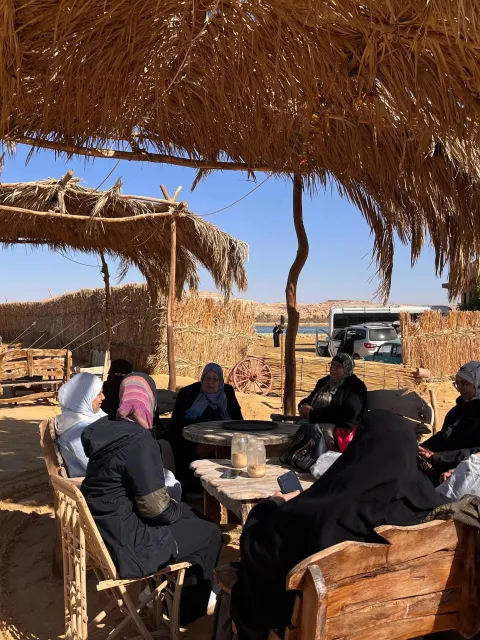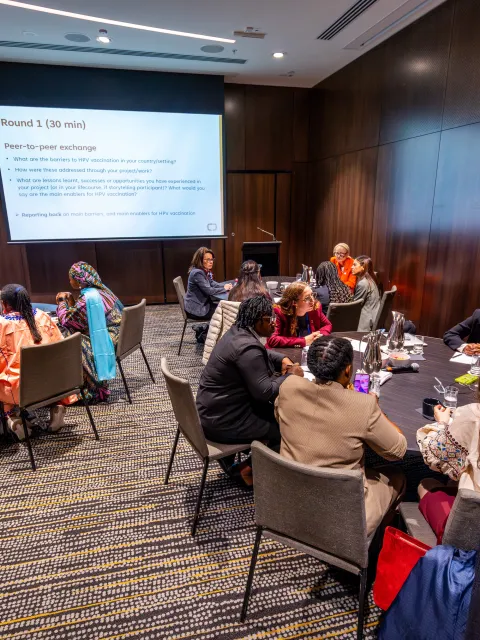New UICC grants aim to boost HPV vaccination efforts in low- and middle-income countries
UICC has announced a new grants initiative aimed at amplifying the impact of civil society organisations (CSOs) in increasing access to HPV vaccination. This initiative supports the broader Global Strategy to eliminate cervical cancer, which was launched by the World Health Organization (WHO) on 17 November 2020.

The project by the Cancer Institute (WIA), India aims to develop effective strategies to overcome the challenges to vaccine uptake, including insufficient awareness, misinformation, vaccine hesitancy, and a lack of intersectoral coordination. The organisation has launched the State’s first HPV vaccination initiative, a facility-based pilot programme to administer the vaccine.
WHO’s Global Strategy to eliminate cervical cancer outlines three objectives for countries to achieve by 2030 to be on track for elimination, including the target of vaccinating 90% or more of all girls by the age of 15.
Despite significant efforts, HPV vaccination coverage remains suboptimal, particularly in low and middle-income countries (LMICs). As of 2024, over 98% of high-income countries had introduced HPV vaccines into their national immunisation schedules, while 46% of low-income countries and 59% of lower-middle-income countries had done so.
“The main challenge in El Salvador to achieve the goal of 90% of girls vaccinated by age 15 is the lack of information among the general public, especially parents and teachers, about the availability and safety of the vaccine, as well as the lack of training of primary care health personnel regarding HPV vaccines. This project addresses these challenges by implementing educational campaigns and training programmes that empower parents, teachers, and health professionals, ensuring that everyone is well informed about the importance and benefits of vaccination.”
– Dr Lisseth Guadalupe Ruiz de Campos, President of ASAPRECAN, El Salvador
UICC’s new grants programme seeks to help address this gap by supporting high-impact, CSO-led projects that focus on advocacy, awareness campaigns, community mobilisation, and implementation research.
The initiative responds to the findings from UICC’s 2023 landscaping report on the engagement of cancer organisations in HPV vaccination. The report highlighted the crucial role CSOs play in achieving introduction and scale up of HPV vaccination, and identified four key areas where CSOs require support to fully harness their essential role in HPV vaccination: knowledge for advocacy, communication for public education, resources for implementation, and organisational skills for sustainability.
“Kenya’s goal to reach a 90% HPV vaccination rate for girls by age 15 faces significant obstacles, including low awareness, cultural and religious barriers leading to vaccine hesitancy, limited access in rural areas and urban informal settlements, and delivery challenges within the healthcare system. KENCO is addressing these issues through comprehensive community engagement.”
– Charles Muya, Program Manager, Kenya Network of Cancer Organizations (KENCO)
Applications were reviewed by an independent review committee, chaired by Cathy Ndiaye, Director of HPV Vaccine Programmes at PATH. Selection criteria were based on the relevance, feasibility, potential for impact, and sustainability of the projects, as well as political and socio-economic context. These projects are expected to significantly contribute to the global effort to eliminate cervical cancer by increasing HPV vaccination rates among girls under 15.
Grants have been awarded to selected UICC members, with each project receiving USD 20,000.
This new initiative complements other UICC activities supporting the global elimination agenda, including engaging and supporting its members in improving access to screening and treatments.
“Geographic isolation, cultural beliefs, and limited access to healthcare leave many vulnerable girls behind, with with vaccination rates as low as 40% in some of the most remote communities. This project, in partnership with the Perak State Health Department (MOH) as the primary healthcare provider in the region, and with technical support from IARC, aims to build trust and increase vaccine acceptance by working with trusted community leaders, deploying mobile vaccination units to access hard-to-reach areas, and developing culturally sensitive educational materials.”
– Dr Hamizah Sa'at, Senior Lecturer in the Department of Surgery at University of Malaya, Faculty of Medicine, Malaysia
List of grantees
African Palliative Care Association, Uganda
Asociación Salvadoreña para la Prevención del Cáncer, El Salvador
Cameroon Baptist Convention Health Services (CBCHS), Cameroon
Cancer Institute (WIA), India
Global Medical Knowledge Alliance, USA / Ukraine
Kenyan Network of Cancer Organizations, Kenya
National Health Laboratory Service, South Africa
National Cancer Council of Mongolia, Mongolia
Philippine Cancer Society, Inc., Philippines
University of Malaya, Malaysia
Last update
Monday 18 November 2024
